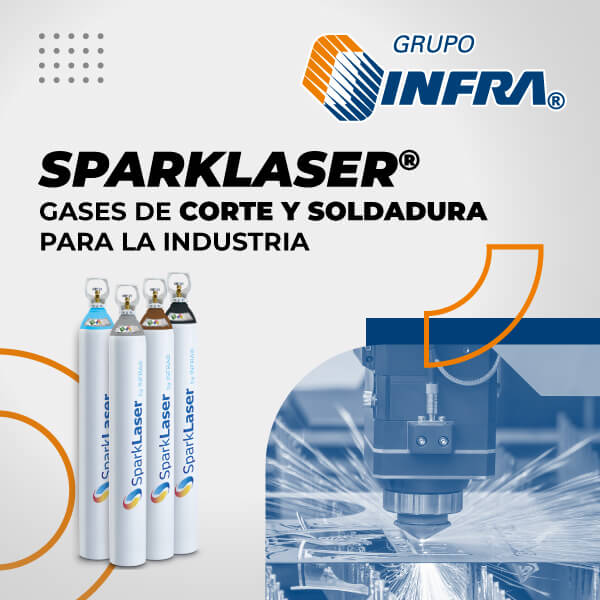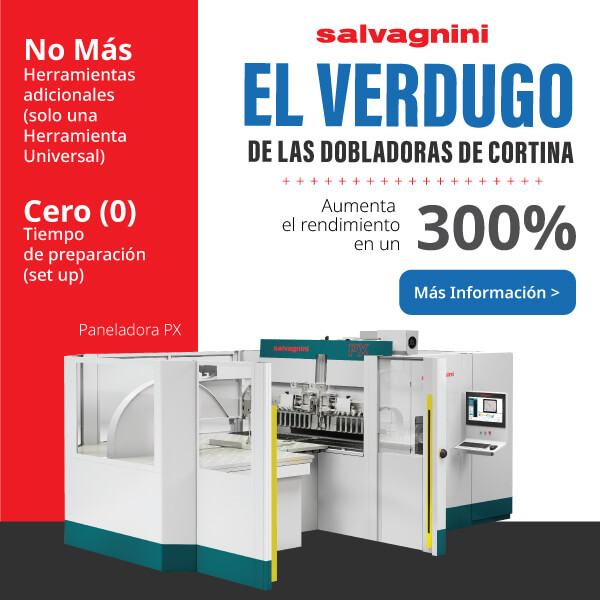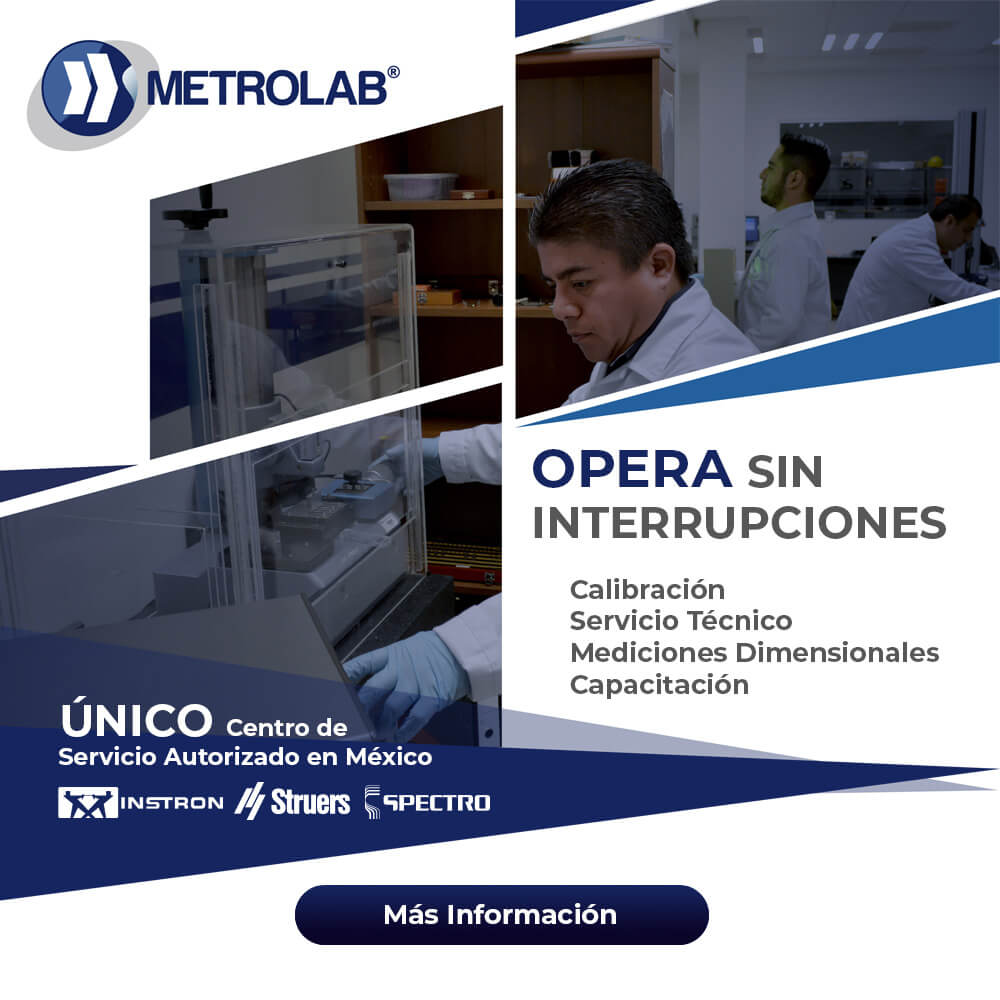AUTOMATION BOOSTS COMPETITIVENES
It increases product quality and optimizes costs
For Manuel Martínez, Managing Partner of Advanced Industrial Applications, automation is crucial in today’s world for companies who want to be competitive, efficient, and profitable, and to obtain quality and speed in production.
For the manager of the business offering service in industrial automation, especially in the areas of cement, steel, energy, and manufacturing, any developing company that needs to improve its quality and productivity should turn to automation.
“A company relies on two important areas: information technology and production. Both are managed by independent departments. An important service of our company is to unite these two worlds,” said Martínez.
Since informational technology and production should work together, it benefits a company greatly to automate the coordination and communication between them. Administration provides the production goals so that clients’ needs can be met, whereas production provides the real results obtained on the plant’s floor.
The automation company has an excellent degree of knowledge about how to link administrative data processing with the plant’s control system as well as with the tools necessary for automating the informational flow in an industrial complex.
“We’ve developed automation for big businesses like CEMEX, TERNIUM, GB POWER, and Fibras Químicas, among other manufacturing companies. Currently, we are working on an important project with General Electric, helping them to test electronics in Brazil,” said Martínez.
For Rafael Serrato, Managing Partner of Advanced Industrial Applications, the benefit that the automation process gives to businesses is exchanging obsolete equipment for modern systems that optimize the interface between production processes and operations personnel, helping them to make decisions more efficiently.
“By automating a plant, it also changes the profile of the staff who work in operations, as better prepared and more highly educated employees are required. All of the above helps to give better results in the company’s productivity and quality,” Serrato pointed out, adding that a company must satisfy its clients and make production easier, meeting the clients’ needs and making available sales of solutions and equipment.
“When a client needs a solution, the first thing we do is make the conceptual design. From there, we see what tools we need, and then select the best equipment for him or her,” said the manager, who added that today they are developing a system of electrical tests for locomotive engines.
Another company that both represents and leads automation worldwide is Festo Automation. Festo provides solutions in industrial process automation by using pneumatic implementation to increase production and efficiency in its clients’ manufacturing processes.
Festo is known for manufacturing pneumatic, electro-pneumatic and electrical equipment such as: pneumatic cylinders, electric actuators, valves, intelligent valve terminals, PLCs, sensors, servomotor handling systems, timing belts and screw bands, air-quality analysis and energy-saving systems – all made with the goal of automating machines so that they move automatically or semi-automatically. Additionally, if one is looking for fluid handling, Festo has the complete solution for process valves.
“The client approaches us and states his concern about his company’s growth and the automation of its processes. Festo first analyzes the process; then it comes to engineering, where it carries out project development; and finally it chooses the products that can be implemented in the client’s machinery,” added Alejandro Anzoátegui, Sales Manager in Festo Automation, Monterrey.
“To receive a better automation, the company must have a good consultant, who is specialized and personalized in implementing the process in its business. We can offer them that,” said the manager, who added that, “Automation impacts industrial developments, helping them to develop in competitiveness, productivity, and – best of all – in the quality of their products,” said Anzoátegui. He noted that these process can deployed in all industrial sectors, from the automotive industry to the food and packing industry and continuing on to the electronics industry, among many others.
Whirlpool, Vitro, Bimbo, Metelsa, and Cervecería Cuauhtémoc Moctezuma are some of Festo’s main customers in Monterrey.
Robots Serving Industry
Reaching to where humans cannot in operations, or carrying out dangerous or precise activities that cannot be performed by humans, is the role of robotic equipment.
“For example, to work near things that are very hot, such as casting and welding, or in areas where there is smoke or where the worker’s life may be endangered: that is where industrial robots can be used,” said Heinz Dieter Hauger, CEO of Reis Robotics México.
Unlike other machinery, robots are freely programmed to be able to do anything imaginable.
Any company that has a repetitive process which requires a large staff to carry out is an excellent candidate for changing their manufacturing process and starting with automation.
“One of the advantages of robotizing a business is that robots do not make mistakes. Moreover, they produce twice as much as a human and finish with quality products,” said Ezekiel Herrera, Technical Manager at
Reis Robotics Mexico. He also mentioned that, today, robotics is used in welding, automotives, and the handling of heavy objects in the cement industry, as well as during glass and plastic manufacturing.
He noted that among the different types of robots that Reis provides the industry are included ground, hybrid, and linear robots that can handle a weight from six to 250 kilos.
“Unlike other machinery, robots are freely programmed to do anything you can imagine,” said Herrera, who added that one of the most advanced robots today is the hybrid.
The hybrid robot is known for being linear and hung on the roof of the industrial plants. By doing so, it optimizes the operational cells; they are compacted, making for faster production.
Reis produces its robots in Germany, whereas – in Mexico – they develop the conceptual design, engineer and install equipment, and then train staff for operation and maintenance.
“We provide the whole service, from the beginning idea to the installation and operation of equipment. We solve problems, we follow up on the process, and everything comes with a guarantee and constant service,” said the manager.
Nationally, the company has about 400 large robotic cells installed for large clients and carries out the work required to integrate them into their plants. These clients include Volkswagen, SKF Group, Mahle, and Takata.
Myths of Automation
Today, the myth of the high cost of automation and its possible replacement of the workforce has led many companies not to apply this system in their operations.
At one time, automation equipment was very expensive, but nowadays, prices have fallen, which has helped more companies to acquire it.
One of the companies that operates under an automated system is Morrison Products, which manufactures wheels, turbines, propellers, fans and blowers for the air conditioning industry.
“We considered the automation process because it provides great advantages in processing, and we get quality and higher productivity,” said Edilberto Ortiz, plant manager, who stressed that, thanks to automation, the company manages to deliver fast, quality and better finishes to its pieces.
This process allowed for increased production and sales, according to the manager.
“Automation does not replace the workforce, but is currently used to simplify activities, and to obtain better quality and productivity,” said Heinz Dieter
The industrial market recently demands people who are more prepared and able to operate in these processes, which invites us to grow in and revolutionize this field.
“Today, automation is not expensive, and it does not replace the workforce. They will continue to have the same personnel, only now the personnel will be more capable. There are no disadvantages; quite the opposite – companies will receive many benefits,” said Alejandro Anzoátegui.
Investing in automation is a breakthrough for a company’s growth, since the investment is recovered immediately by the benefits given through increased production and quality of parts.









































































































































































